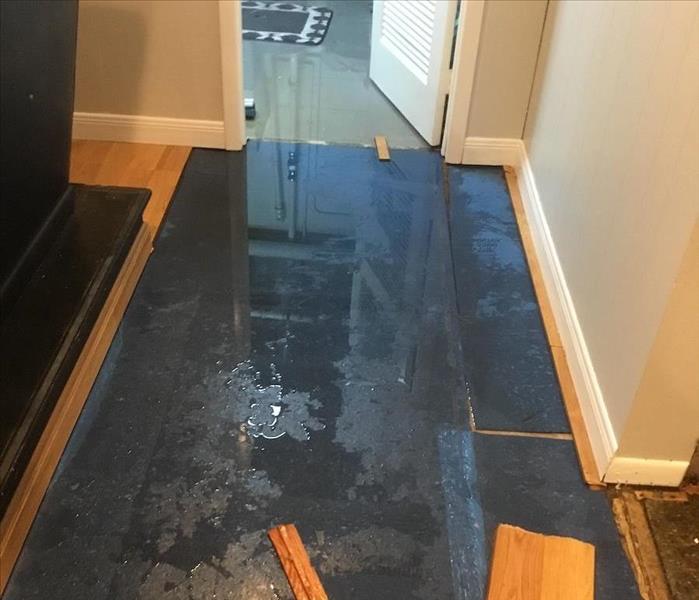Can Pipes Freeze in Closter Homes Under Cold Conditions?
1/4/2022 (Permalink)
 Storm and flood damage mitigation services by SERVPRO are second to none. Call now for fast and immediate service.
Storm and flood damage mitigation services by SERVPRO are second to none. Call now for fast and immediate service.
Frozen pipes are a costly and destructive situation for Closter residences.
The winter months can bring about steep temperature drops and cold snaps that expose a home's vulnerabilities and its exterior protection. As compromising as these water damage events can be, much of them can be prevented with a few early steps.
How Do Pipes Freeze?
Frozen pipes and ice damming in Closter can both be destructive and crippling to a home when water damages result. Pipes freezing is a common callout for our SERVPRO professionals, as many do not realize plumbing is underinsulated until these lines succumb to the low temperatures.
What Causes Plumbing to Burst in These Conditions?
While the standard in modern plumbing installation has transitioned to PEX materials that are more durable against threats of expansion and warping, many homes still have lead and copper service lines that are highly sensitive to the growth of water as it freezes. When ruptures occur, many materials can be damaged like:
- Cabinets
- Wall Assemblies
- Ceiling Systems
- Wood Flooring
- Carpeting
How Can You Prevent Frozen Lines?
It is possible to avoid the costly damage that frozen pipes can cause when they burst. The first step of this process is to ensure that vulnerable water lines have sufficient insulation to protect against direct environmental conditions that can cause a freeze.
When Does SERVPRO Need to Help?
It is not challenging to see when water damage occurs after these events, showcasing a clear need for professional restoration and recovery. With powerful mitigation tools like pumps and vacuums, we can quickly regulate threatening conditions to protect properties from irreparable harm.
Regardless of how water damage threatens your home this winter, our SERVPRO of Northeast Bergen County team can help with efficient mitigation and restoration solutions. Call when you need us at (201) 244-0100.






 24/7 Emergency Service
24/7 Emergency Service